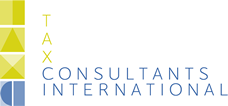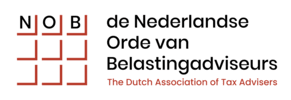The proposed changes of 30% ruling were heavily debated in Parliament and finally the Parliament approved of an amended version of the proposed changes of the 30% ruling. There are still material changes which are explained below, but the sharp edges are off.
About the 30% ruling in general
In the Netherlands, employment income is taxable at progressive rates. As the highest Dutch tax rate is 52%, the Dutch government wished to offer an incentive to attract foreign experts to the Netherlands by creating a favorable tax regime for employees. Under this regime, the 30% ruling, the employee will be taxed on only 70% of his employment income. As a result, the effective tax due is substantially reduced (the effective maximum rate is reduced to 36.4% (70% * 52%).
The 30% ruling is generally available for employees assigned to the Netherlands, or recruited from abroad for the purpose of employment in the Netherlands. The employee must be employed by a Dutch resident employer or a foreign employer who is a wage tax withholding agent in the Netherlands.
The key condition for qualification is that the employee must have specialized skills or knowledge not readily available on the Dutch labour market (“the specific expertise test”).
For further general information regarding the 30% ruling, we refer to Dutch expatriate tax regime: the 30% ruling
Changes as 1 January 2012
Recently, with the 2012 Budget Plan the Dutch State Secretary of Finance announced amendments of the 30% ruling as of 1 January 2012.
The amendments are the following:
- The maximum grant period of the 30% ruling will be limited to 8 years.
- The „specific expertise test will be based on a minimum taxable salary level;
- The look back period regarding the reduction rules on the grant period, that reduce the duration of the 30% ruling by previous periods of stay and/or work in the Netherlands, is extended to 25 years;
- Employees living within a radius of 150 km from the Dutch borders will not qualify for the 30% ruling;
- University doctorates can obtain the 30% ruling easier;
The above mentioned amendments are explained in more detail below
1. Grant period
For employments in the Netherlands started after 31 December 2011, the maximum grant period of the 30% ruling will be restricted to 8 years (96 months). This used to be 10 years (120 months).
Further, the current interim test (after the first 5 years to verify whether the 30% ruling could be continued for the remaining grant period) is abolished. As of 2012, the requirements for the 30% ruling need to be met continuously. In case, at any moment, the requirements are not met, the 30% ruling ends at that moment.
Finally, under the new rules, the 30% ruling can no longer be used when the employment in the Netherlands has stopped. With this, the Dutch tax authorities want to avoid the application of the 30% ruling on employment income that becomes taxable in the Netherlands after the employee has left the Netherlands (such as bonus payment or stock options, even when these became unconditional during the Dutch employment). Please note that this position may still be challenged due to a current pending Dutch court case.
2. Specific expertise test
In practice, the requirement that an employee has to have specific expertise that is hardly of not available on the Dutch labour market was not difficult to meet. Since it is unwanted to meet the specific expertise test too easy, with the new rules a minimum taxable salary level is introduced. The minimum salary level for the purpose of the 30% ruling is the amount excluding the 30% tax free allowance.
A distinction in minimum salary level needs to be made for various types of employees. There is a general minimum taxable salary level amounting to EUR 35,000 (in case the full 30% allowance is provided instead of a lower percentage, meaning a gross salary of EUR 50,000). Further, for masters (Msc) younger than 30 years, a lower minimum taxable salary level amounting to EUR 26,605 is applicable (in case the full 30% allowance is provided instead of a lower percentage, meaning a gross salary of EUR 38,007). Finally, scientists and researchers of educational and subsidised research organisations are exempt from the minimum salary requirement.
If an employee meets the salary level required for his applicable situation, he/she qualifies to have specific expertise. Please note that it is still required that his/her specific expertise is not or scarcely available on the Dutch labour market and that it is expected that the tax authorities will monitor this closely for specific groups of employees.
Since the taxable salary will be decisive for the qualification of having specific expertise, this will not only include the regular fixed salary, but also other items such as variable salary items (e.g. bonus, stock options), taxable benefits in kind (e.g. company car, housing) and tax deductions/inclusions (e.g. pension contributions, health care contributions paid by employer).
In case an employee does not meet the minimum salary level, there may be a tax planning possibility to grant a lower percentage of tax-free allowance under the 30% ruling (less than 30%) to meet the minimum taxable salary level. For the specific situation that employees are not fully taxable in the Netherlands on their employment income, for instance when having a salary split, the total worldwide employment income will be taken into account for the determination of the minimum salary requirement. In addition, it is not fully clear yet how to deal with employees who work part-time in the Netherlands not meeting the new salary level requirements. Further rules will need to be published regarding part-time workers.
3. 25 year look back
As of 2012, all periods of previous stay and/or work in the Netherlands that ended in the last 25 years before the start date of the Dutch employment are deducted from the maximum grant period of 96 months. This will exclude almost all Dutch national employees who return to the Netherlands to work. In addition, this may also have an increased impact on non-Dutch employees who have been in the Netherlands before, since the relatively small look back period of 10 or 15 years is now increased to 25 years.
In addition, the reduction rules have also slightly changed in case a reduction of the grant period takes place. Only in case certain thresholds are exceeded in the past 25 years, this will lead to a reduction on the grant period. These thresholds include a maximum of 20 work days in the Netherlands per calendar year or a maximum of 6 weeks per calendar year of stay in the Netherlands for personal reasons or a maximum one-time stay of 3 months in the Netherlands for personal reasons. If any of these thresholds are exceeded, all periods of previous stay and/or work in the Netherlands are deducted from the maximum grant period of 96 months (each reduction period rounded up in months).
Directors and supervisory board members of Dutch companies who want to obtain the 30% ruling, are also facing additional new rules regarding the 30% ruling. Earlier periods of being employed and benefiting from the 30% ruling, although not being psychically present in the Netherlands, are taken into account as deemed periods of work and as such will lead to a reduction on the grant period of the 30% ruling. This is to avoid that reductions on a future 30% ruling grant period for directors and supervisory board members will be limited to only psychical days of work/stay in the Netherlands in the past.
4. 150 km border radius
Employees living in the border area of 150 kilometres from the Dutch borders, during at least 1/3 part of the 24 months period prior to the start of their employment in the Netherlands (to avoid tax planning), will no longer qualify for the 30% ruling. As such, resident taxpayers of Belgium, Luxembourg, a big part of western Germany and a small part of northern France will be excluded to apply for the 30% ruling. It may also be the case that very small parts of the UK and Denmark may be excluded as well, although these regions were not specifically mentioned by the Dutch State Secretary of Finance.
The purpose of this limitation is to avoid that employers will employ foreign employees from the Dutch border area instead of Dutch resident taxpayers, only because of the 30% ruling. The argument for this is that within a 150 km distance, it is easy for an employee to commute to the Netherlands and as a result the extra-territorial costs (the 30% ruling is supposed to cover these costs) are not significant. For employees residing within the 150 km radius of the Dutch borders the 30% tax free allowance is considered to be too substantial.
It may be argued that this limitation is disproportional and that it is not EU proof, since it rules out two countries (Belgium and Luxembourg) and also the actual Dutch workplace of an employee (possibly further than 150 km from the place of residence) is not taken into account. It may be the case that the distance for a resident of Belgium, Luxembourg, Germany or France is too high to commute and as such, extra-territorial costs will be significant. There is a chance that this may be challenged based on EU-regulations in the future.
5. University doctorates
For university doctorates who obtained their PhD whilst living in the Netherlands a relief is introduced. These doctorates are not considered to be locally hired and as such they can apply for the 30% ruling without being assigned/recruited from abroad. They only need to meet the condition that they start their Dutch employment within one year after obtaining the PhD. Obviously, still the minimum salary level requirement needs to be fulfilled, although this may be lower (doctorates younger than 30 years) or not applicable (for scientists and researchers).
New rules into force as of 1 January 2012
The new rules will be applicable as of 1 January 2012 and as such, applications for the 30% ruling regarding employments that started before this date will not be effected retroactively. Until 1 January 2012 there may be some tax planning opportunities in case of the necessity to move forward assignments/employments for which the application for the 30% ruling may be denied after 1 January 2012 (such as too low salary or living in within the 150 km border area) or for which the new rules may be less beneficial (such as the maximum grant period being reduced to 8 years).
New applications
Since these new rules are quite substantial, the Dutch tax authorities have announced that new application forms will be made available soon. Most likely an upfront assessment of the salary level at application for 30% ruling is not possible, since this can also include variable components. As such, it is expected that the Dutch tax authorities will request a statement of the employer in which is indicated that the required salary level is met. Through the payroll administration, the Dutch tax authorities can continuously review the salary level and if the required level is not met, subsequently the 30% ruling is not applicable as of that moment. As a result, the Dutch tax authorities will retro-actively file an additional wage tax assessment to collect the incorrectly not withheld Dutch wage tax (possibly including interest and penalties).
Transitional rules
In general, all new rules are also applicable on 30% rulings obtained for employments started before 1 January 2012. For instance, the rules regarding the direct ending of the 30% ruling when no longer having a Dutch employment, is also applicable on already existing 30% rulings.
Please find below some transitional rules that make an exception on the new rules for 30% rulings regarding employments first started before 1 January 2012.
5 year interim test
As mentioned earlier, a granted 30% ruling for an employment first started before 1 January 2012, is being respected. However, as of the sixth year of the grant period, the Dutch tax inspector has the possibility to ask the employer to proof that the employee involved still meets the requirements of the 30% ruling; the so-called 5 year interim test. Effectively, under the transitional rules the tax inspector can (retroactively) deny the usage of the 30% ruling for the remaining grant period after 5 years if:
- They employee does not meet the minimum (taxable) salary requirement applicable to the situation; or
- Prior to the recruitment from abroad, the employee lived within the 150 km border radius.
Employees who have already passed the 5 year period prior to 1 January 2012 are not affected at all. However, it may be advisable to request for an interim test with the Dutch tax inspector voluntarily before 1 January 2012, to avoid any discussions with the Dutch tax authorities in the future (e.g. when a wage tax audit takes place).
For completeness’ sake, please note that the “25 year look back period” and the “maximum grant period of 8 years” rules will not be applied at the 5 year interim test.
Change of employer or withholding agent
In case of a change of employer or withholding agent, it is most likely that the new rules will also apply (with exception of the “25 year look back period” rule), although this is not fully clear yet. However, also in that situation, for 30% rulings of employees that already passed the 5 year grant period before 1 January 2012, one may expect the new rules not to be applicable.
Extra-territorial costs
Please note that, regardless of the application for the 30% ruling, it is still possible to tax free reimburse actual extra-territorial costs made by the employee. Also in case the further usage of the 30% ruling is denied.


.png)

